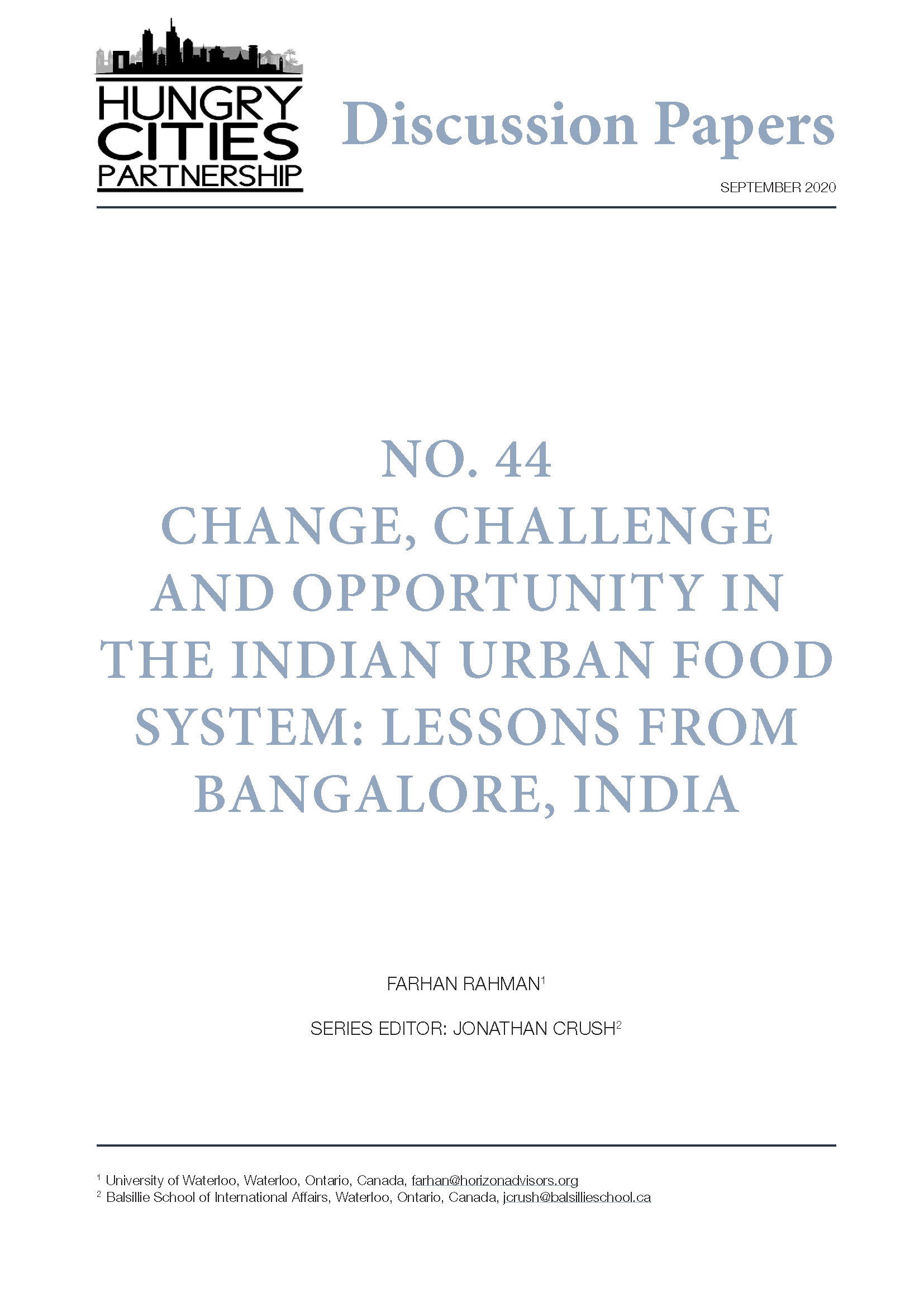Over the past decade and a half, food policies have undergone much change as decentralization and the reliance on free markets have escalated. Increasing levels of research into the traditional wholesaling system prompted Indian lawmakers to embark upon reform. Using evidence obtained from doctoral research in Bangalore, India, this paper demonstrates that the traditional system is still largely intact. However, there are structural socio-economic and political challenges that act as barriers towards the continued survival of traditional food vendors in the urban sphere. This paper outlines key areas of research in price management, micro-small medium enterprise development, political empowerment and urban planning at the local scale that could provide new directions for urban, food, and local development.

